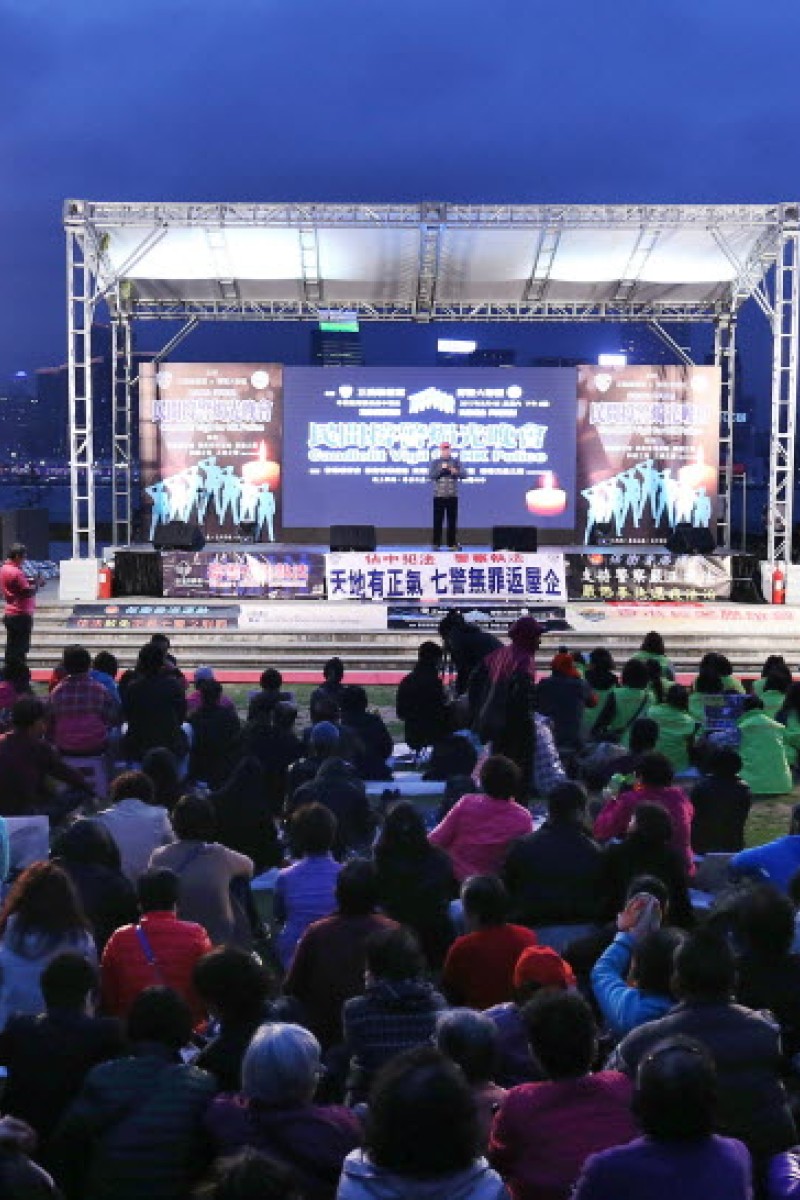

 Police hold rally to support the seven police officers at the Tamar Park.
Police hold rally to support the seven police officers at the Tamar Park.The pro-establishment camp has criticised the recent ruling by District Court judge David Dufton, who sent seven police officers to jail for assaulting activist Ken Tsang Kin-chiu during the 2014 Occupy Central protests. More than 30,000 police officers and their supporters, including Legislative Council members, took to the street to protest against the judgment.
Some even compared the insults against police with the Holocaust in Nazi Germany. Although such a comparison seems silly, I think the furious backlash is alarming and not to be taken lightly.
Courts are not immune from criticism. Judges should be impartial and base their rulings on sound legal principles, instead of popular beliefs or public sentiments. The implications of a “corrupt” judiciary are far too great for us to even think about them. A popular judgement does not necessarily mean it is a legally correct ruling. Allowing the public to force a court into making a judgment that is not based on legal grounds would undoubtedly damage its impartiality.
It is also worth noting the response to Dufton’s ruling on social media, with some police supporters posting insulting criticism and abuse.
Film director Clifton Ko Chi-sum wrote on Facebook: “Yellow-ribbon judges favoured troublemakers in Hong Kong. Localist, pro-independence rioters commit arson, assault police, vandalise public property, dog judge rule leniently, or even acquit them, showing absolute favouritism.”
Some people even used foul language, showing blatant disrespect towards the court and its judges. Not only do these unwarranted and abusive attacks not encourage sensible discussion on the issue, such comments hint at a public distrust of our judges. For example, during the Occupy Central protests, Caring Hong Kong Power protesters, a pro-Beijing group, yelled slogans including “The police arrest, the courts release”. Another group, Clean Hong Kong, also used extreme slogans, such as “I want real judges, not fake wig judges!”.
There seems to be a trend among protesters to insult judges when they do not agree with a ruling.
This puts our judicial and the citizens in two separate camps.
Courts make “unpopular” judgments; this happens all the time. Yet this does not mean that we can heap abuse on our judges. This is because our legal system is based on the courts making just and fair judgments. Also, our justice system helps to ensure that there is no abuse of power by the government or the police force. Ultimately, if the trust in our legal system is eroded, the consequences will be severe.
We must learn to respect our legal system even if we disagree with a judgement.
